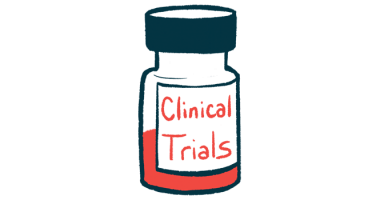AbbVie levodopa therapy approved as Vyalev for advanced Parkinson’s
Therapy formerly called ABB-951 approved by FDA to treat motor fluctuations

The U.S. Food and Drug Administration (FDA) has approved foslevodopa and foscarbidopa, a levodopa therapy given as a 24-hour under-the-skin infusion, to treat motor fluctuations in adults with advanced Parkinson’s disease.
The newly approved therapy, which had been known as ABBV-951 while in development, will be sold by its developer AbbVie under the brand name Vyalev, the company said in a press release announcing the FDA decision.
“People living with advanced Parkinson’s disease experience daily challenges as a result of uncertainty in managing motor fluctuations, especially as their disease progresses,” said Roopal Thakkar, MD, executive vice president of research and development and chief scientific officer at AbbVie. “We are proud to bring this innovation to patients who may benefit from motor symptom control through continuous 24-hour administration of Vyalev.”
The timing for when eligible U.S. patients will be able to access Vyalev will depend on individual insurance plans, according to Abbvie. The company said that patients insured by Medicare, the government-funded program that gives health insurance to elderly Americans, should expect to be able to access Vyalev in the second half of 2025.
The road to FDA approval was bumpy for Vyalev
Parkinson’s is caused by the death of brain cells responsible for making the signaling molecule dopamine. Reduced dopamine levels disrupt brain signaling, ultimately resulting in Parkinson’s symptoms, with the disease’s effects on movement and balance as perhaps its best-known signs.
Levodopa is a mainstay Parkinson’s treatment that acts to give the brain more raw material with which to make dopamine. Levodopa is traditionally taken orally, and it’s usually given in combination with carbidopa, a medicine that allows more levodopa to get into the brain.
Although oral levodopa/carbidopa therapy can be very effective for controlling Parkinson’s symptoms, patients often experience off episodes in which symptoms aren’t controlled between scheduled doses of the oral therapy.
Vyalev is designed to deliver levodopa and carbidopa continuously as a subcutaneous, or under-the-skin, infusion using a specialized pump. By providing a constant supply of medication, the newly authorized therapy is designed to reduce the frequency of off episodes.
The therapy’s road to FDA approval has been rocky, however. Abbvie originally filed an application seeking approval in 2022, but the FDA rejected that submission with a request for more information about the pump used to administer the therapy. Earlier this year, the FDA issued a second rejection due to problems at a manufacturing facility.
Now, the FDA’s approval of Vyalev was based in large part on findings from a Phase 3 clinical trial (NCT04380142) that compared the infusion therapy against traditional oral levodopa/carbidopa in Parkinson’s patients who were experiencing several hours of off time per day with oral therapy.
For too long, the Parkinson’s community has had limited treatment options for advanced disease. … This new … regimen provides continuous delivery of levodopa morning, day and night.
The FDA approval additionally was supported by a yearlong open-label trial (NCT03781167), completed in 2022, that also showed Vyalev reduced off time in Parkinson’s patients.
The most common side effects of Vyalev are reactions and infections at the infusion site, hallucinations, and dyskinesia, or uncontrolled movements — a well-known side effect of long-term levodopa therapy.
The results showed that, after about three months of treatment, average daily off time decreased by nearly three hours in patients given Vyalev, compared with less than an hour in patients who stayed on oral treatment. Consistently, so-called on time — when symptoms are well-controlled — increased more with Vyalev than the oral therapy.
“For too long, the Parkinson’s community has had limited treatment options for advanced disease,” said Robert A. Hauser, MD, director of the Parkinson’s and Movement Disorder Center at the University of South Florida.
“Due to the progressive nature of the disease, oral medications are eventually no longer as effective at motor symptom control and surgical treatment may be required,” Hauser said. “This new, non-surgical regimen provides continuous delivery of levodopa morning, day and night.”
Vyalev became available in Canada earlier this year. The therapy is also authorized in the European Union and the U.K., where it’s sold under the brand name Produodopa.







